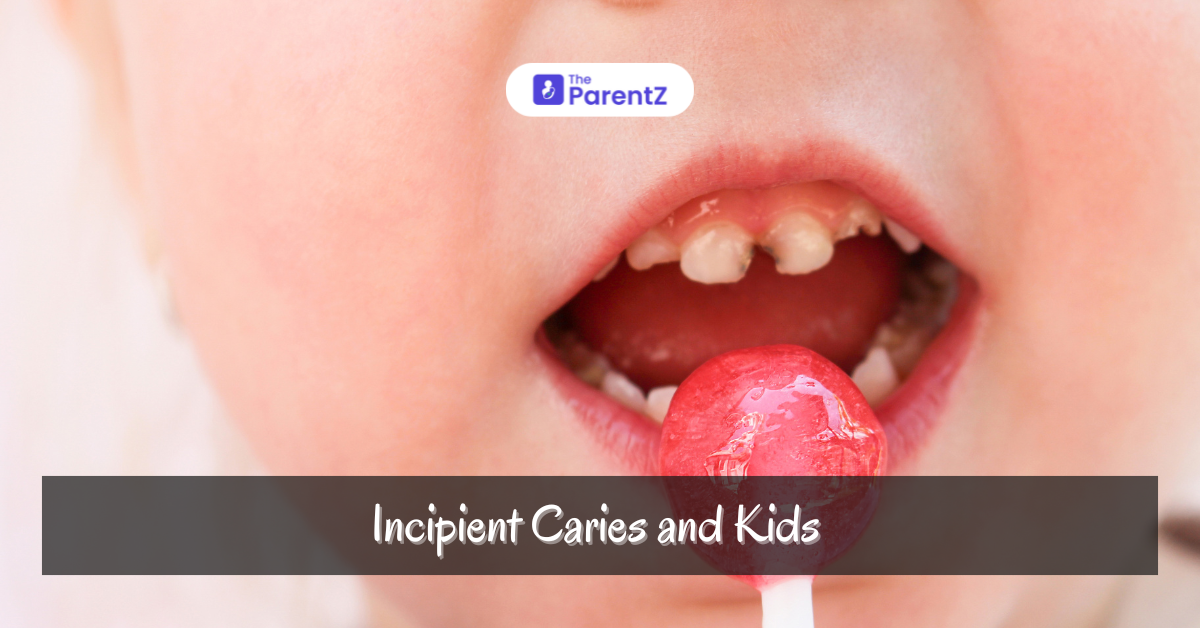Tooth decay doesn’t happen overnight. In fact, the earliest stage of cavity formation, called **incipient caries**, can go unnoticed by many parents. This initial phase occurs when the enamel, the outermost layer of a tooth, begins to break down due to prolonged exposure to acids produced by bacteria. Unlike fully developed cavities, incipient caries can be stopped—and even reversed—with the right care.
Understanding incipient caries is crucial because children’s teeth are especially vulnerable. Kids are often exposed to sugary snacks, juices, and lack thorough brushing techniques, making their teeth more prone to early decay. However, catching these tiny trouble spots early means parents and caregivers can prevent them from developing into larger cavities that may require more invasive treatment, such as fillings or crowns.
Causes of Incipient Caries
1.Dietary Habits:
The consumption of sugary foods and beverages is a leading cause of incipient caries. High sugar intake provides fuel for bacteria that produce acid, leading to enamel demineralization. Common culprits include candies, sodas, and fruit juices, especially when consumed frequently or in excessive amounts.
2.Poor Oral Hygiene:
Inadequate brushing and flossing allow plaque, a sticky film of bacteria, to accumulate on teeth. Children often struggle with proper oral hygiene techniques, which can result in plaque buildup and increased risk of caries.
3.Saliva Composition:
Saliva is essential for oral health, as it helps neutralize acids and remineralize teeth. Children with reduced saliva flow, whether due to dehydration, medications, or certain medical conditions, may have a higher risk of incipient caries.
4.Fluoride Exposure:
Fluoride plays a critical role in strengthening enamel and preventing decay. Insufficient exposure to fluoride, whether from toothpaste, drinking water, or professional treatments, can increase susceptibility to incipient caries.
5.Frequent Snacking:
Regular snacking, particularly on sugary or carbohydrate-rich foods, keeps the oral environment acidic for extended periods. This continual exposure to acids can weaken enamel and promote the development of caries.
6.Dental Anatomy:
Children may have dental anatomy that predisposes them to caries, such as deep pits and fissures on molars where food particles can accumulate and bacteria thrive.
Effects of Incipient Caries
1.Progression to Cavitated Caries:
If left untreated, incipient caries can progress to cavitated caries, leading to more severe decay, pain, and potential tooth loss. Early intervention is crucial to prevent this progression.
2.Impact on Oral Health:
Incipient caries can contribute to a cycle of poor oral health, leading to additional dental issues, increased risk of infection, and potential complications such as abscesses.
3.Pain and Discomfort:
Although incipient caries may initially be asymptomatic, as it progresses, it can lead to sensitivity, discomfort, and pain during eating or drinking, significantly affecting a child’s quality of life.
4.Impact on Nutritional Intake:
Pain from dental decay may cause children to avoid certain foods, particularly those that are hard or cold, potentially leading to nutritional deficiencies.
5.Psychosocial Effects:
Oral health issues can affect a child’s self-esteem and social interactions. Children with visible dental problems may experience embarrassment or anxiety, impacting their overall well-being.
6.Long-term Dental Consequences:
Early childhood caries can lead to a higher likelihood of developing dental issues later in life. Children with a history of caries may continue to face challenges with dental health as they grow, including the need for more extensive dental work.
How to Spot Incipient Caries in Your Child’s Teeth
Incipient caries often appear as white spots on the tooth enamel, especially near the gum line or on the chewing surfaces. These white spots are the first indicators that minerals are being lost from the tooth. At this stage, the enamel is still intact, and with proper oral care—like fluoride treatments and dietary changes—these white spots can be remineralized, restoring the tooth to its healthy state.
Prevention Tips for Parents
1. Daily Brushing and Flossing: Teach your child proper brushing and flossing techniques to remove plaque and food debris.
2. Fluoride Use: Fluoride strengthens enamel and helps reverse early decay.
3. Reduce Sugary Snacks: Limit snacks and drinks high in sugar, which fuel harmful bacteria.
4. Regular Dental Visits: Regular check-ups ensure that any signs of incipient caries are caught early.
Conclusion: Early Intervention for Long-Lasting Smile
Incipient caries is the perfect example of why early intervention matters. By spotting the first signs of tooth decay and taking immediate preventive measures, parents can help their kids avoid more serious dental problems down the road. Protecting that precious smile is easier than ever with the right tools and knowledge.








Be the first one to comment on this story.